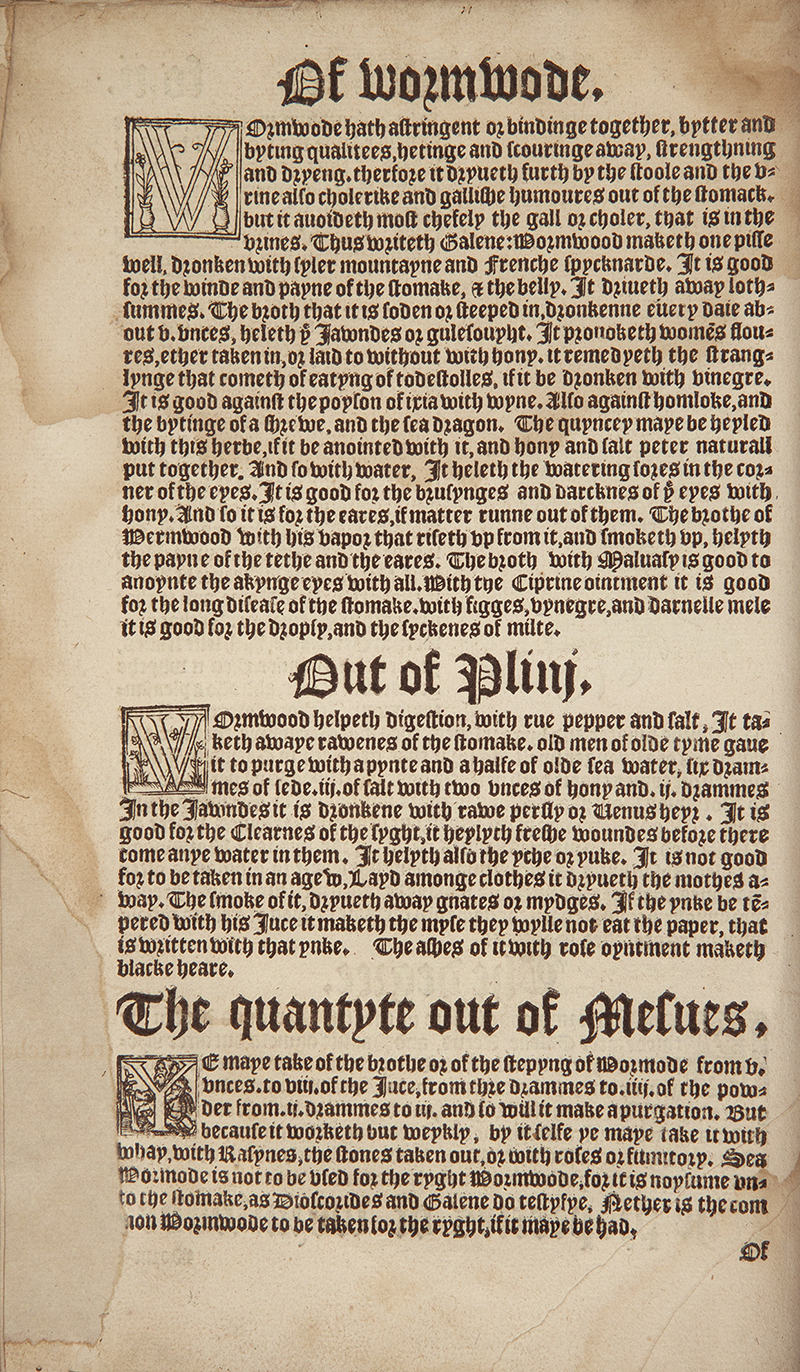Properties of Wormwood

Turner discusses the properties of wormwood, noting that the herb is astringent and, in reference to imbalanced choleric humors, is able to “heat and scour away, strengthening and drying” the stomach. He again quotes Galen, who attests to wormwood’s healing qualities in relation to “wind and pain of the stomach” when made into a broth and drunk daily. Turner lists other recipes and remedies in which wormwood is the chief ingredient; these potions also often include honey, vinegar, water, and salt; ingredients easily accessible and not terribly expensive. Referencing Pliny and then Mesue the Elder, Turner again mentions the virtues of wormwood on digestive issues, but he also adds wormwood’s practical qualities outside of medicine: its use as a mouse and insect repellent. His repeated use of Greek, Latin, and Arabic medical knowledge attests to the wide exchange of scholarship by the sixteenth-century, but also to a stagnation in European medicine and botany up to this period, especially in vernacular traditions. Turner’s approach, to synthesize the foundational ancient corpus with information relevant to the Englishman, signals the emergence of vernacular botany. The second part of this herbal, published in 1562, deals exclusively with flora and fauna native to England.
